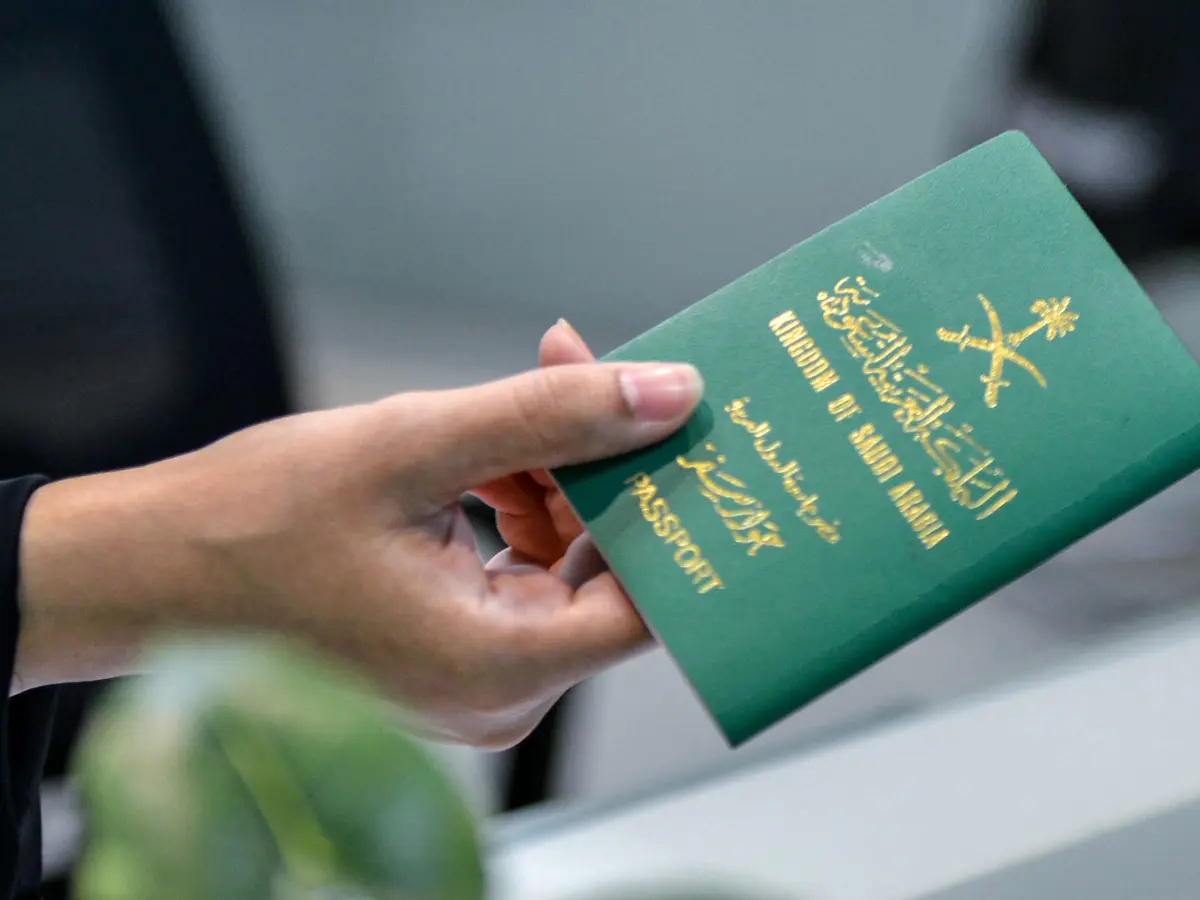In every nation, the realm of immigration and border control stands as a fortress guarding the sovereignty of its borders. Among the pivotal institutions safeguarding these boundaries is the General Directorate of Passports (GDP), an entity charged with managing and overseeing the issuance of passports, regulating immigration policies, and upholding national security measures. In this comprehensive exploration, we delve into the inner workings, significance, and impact of the General Directorate of Passports.
Contents
- 1 Understanding the Role of the GDP
- 2 A Pillar of National Security
- 3 Facilitating Travel and Mobility
- 4 The Evolution of Passport Technology
- 5 Challenges and Controversies
- 6 Ensuring Efficiency and Integrity
- 7 International Cooperation and Collaboration
- 8 The Humanitarian Imperative
- 9 Emerging Trends and Future Outlook
- 10 Conclusion: General Directorate of Passports
Understanding the Role of the GDP
The General Directorate of Passports, often referred to simply as Passports Directorate or Immigration Department, serves as the primary authority responsible for administering passport issuance and immigration affairs within a country. While the specific name and structure may vary from one nation to another, the core functions remain consistent across jurisdictions.
A Pillar of National Security
At its core, the GDP plays a crucial role in safeguarding national security. By meticulously screening passport applications and scrutinizing the backgrounds of applicants, General Directorate of Passports the GDP helps prevent unauthorized entry of individuals who may pose a threat to the safety and well-being of the nation. Through advanced biometric technologies and collaboration with international law enforcement agencies, the GDP acts as a frontline defense against terrorism, transnational crime, and illegal immigration.
Facilitating Travel and Mobility
Beyond security considerations, General Directorate of Passports the GDP also serves to facilitate lawful travel and mobility for citizens and residents. By issuing passports and travel documents, the GDP enables individuals to cross international borders with ease, fostering cultural exchange, tourism, and economic cooperation on a global scale. Furthermore, the GDP plays a pivotal role in administering visa policies and entry regulations, ensuring compliance with diplomatic agreements and international treaties.
The Evolution of Passport Technology
In an era defined by rapid technological advancement, General Directorate of Passports the landscape of passport issuance and authentication has undergone significant transformation. Traditional paper-based passports have given way to sophisticated e-passports embedded with biometric data, digital signatures, and security features such as RFID chips. The GDP spearheads these innovations, leveraging cutting-edge technologies to enhance document security, combat identity fraud, and streamline border control processes.
Challenges and Controversies
Despite its critical importance, the General Directorate of Passports is not immune to challenges and controversies. From allegations of corruption and bribery to concerns over data privacy and civil liberties, the GDP grapples with a myriad of ethical, legal, and operational dilemmas. Striking a delicate balance between security imperatives and individual rights remains an ongoing challenge for policymakers and immigration authorities worldwide.
Ensuring Efficiency and Integrity
In light of these challenges, efforts to enhance the efficiency and integrity General Directorate of Passports issuance and immigration processes are paramount. Through digitalization initiatives, process optimization, and capacity building, the GDP seeks to streamline operations, reduce bureaucratic hurdles, and improve service delivery for applicants. Moreover, fostering transparency, accountability, and adherence to ethical standards are fundamental principles guiding the conduct of GDP officials and personnel.
International Cooperation and Collaboration
 Recognizing the inherently interconnected nature of global mobility and security, the General Directorate of Passports actively engages in international cooperation and collaboration. Through partnerships with foreign counterparts, participation in intergovernmental organizations, and information-sharing agreements, the GDP strengthens cross-border cooperation, harmonizes immigration policies, and addresses transnational challenges ranging from human trafficking to border security threats.
Recognizing the inherently interconnected nature of global mobility and security, the General Directorate of Passports actively engages in international cooperation and collaboration. Through partnerships with foreign counterparts, participation in intergovernmental organizations, and information-sharing agreements, the GDP strengthens cross-border cooperation, harmonizes immigration policies, and addresses transnational challenges ranging from human trafficking to border security threats.
The Humanitarian Imperative
Amidst the complex geopolitical landscape and security imperatives, it is imperative not to lose sight of the humanitarian dimension inherent in immigration and passport management. The General Directorate of Passports plays a vital role in providing assistance and protection to refugees, asylum seekers, and stateless individuals fleeing persecution and conflict. By upholding principles of human rights and humanitarian law, the GDP contributes to the global effort to alleviate suffering and promote dignity for all.
Emerging Trends and Future Outlook
As we move forward into the future, the General Directorate of Passports faces a rapidly evolving landscape shaped by technological innovation, geopolitical shifts, and socio-economic trends. Understanding and adapting to these changes will be crucial for the GDP to fulfill its mission effectively and efficiently.
1. Digital Transformation
The ongoing digital revolution continues to reshape the landscape General Directorate of Passports issuance and immigration management. E-passports, biometric authentication, and online application portals represent just a few examples of digital technologies revolutionizing the field. Embracing digital transformation enables the GDP to enhance security, streamline processes, and improve the overall user experience for applicants.
2. Enhanced Border Security Measures
In response to emerging security threats and geopolitical instability, governments around the world are investing in advanced border security measures. This includes the deployment of biometric screening technologies, enhanced data sharing among law enforcement agencies, and the implementation of risk-based profiling techniques. By adopting a multi-layered approach to border security, the GDP can better detect and deter potential threats while facilitating legitimate travel and trade.
3. Immigration Policy Reforms
The shifting dynamics of migration patterns and demographic trends necessitate continuous adaptation of immigration policies and regulations. From managing labor migration and addressing refugee crises to promoting family reunification and fostering cultural integration, the GDP plays a pivotal role in shaping immigration policies that align with national interests and international obligations. Embracing a holistic approach to immigration management fosters social cohesion, economic growth, and global cooperation.
4. Privacy and Data Protection
In an era of heightened concerns over data privacy and cybersecurity, safeguarding the integrity and confidentiality of personal information is paramount. The GDP must prioritize robust data protection measures, including encryption protocols, access controls, and compliance with relevant privacy regulations. Transparency and accountability in data handling practices are essential to building trust and maintaining public confidence in the passport issuance process.
5. International Collaboration
In an increasingly interconnected world, collaboration among nations is essential to addressing shared challenges and advancing common goals. The GDP should continue to foster international partnerships, exchange best practices, and participate in multilateral initiatives aimed at enhancing border security, combating transnational crime, and promoting cross-border mobility. By working collaboratively with other countries and international organizations, the GDP can leverage collective expertise and resources to address complex global issues effectively.
Conclusion: General Directorate of Passports
As we navigate the seas of sovereignty and global mobility, the role of the General Directorate of Passports remains indispensable. Balancing the imperatives of security, mobility, and human rights requires foresight, adaptability, and a commitment to excellence. By embracing innovation, fostering collaboration, and upholding ethical standards, the GDP can continue to fulfill its vital mission in safeguarding national interests while advancing the cause of peace, prosperity, and human dignity on a global scale.
The General Directorate of Passports stands as a cornerstone of national security, mobility, and international cooperation in an increasingly interconnected world. Through its tireless efforts and unwavering commitment, the GDP plays a pivotal role in shaping the future of immigration and border management, ensuring that the seas of sovereignty remain navigable for generations to come.
